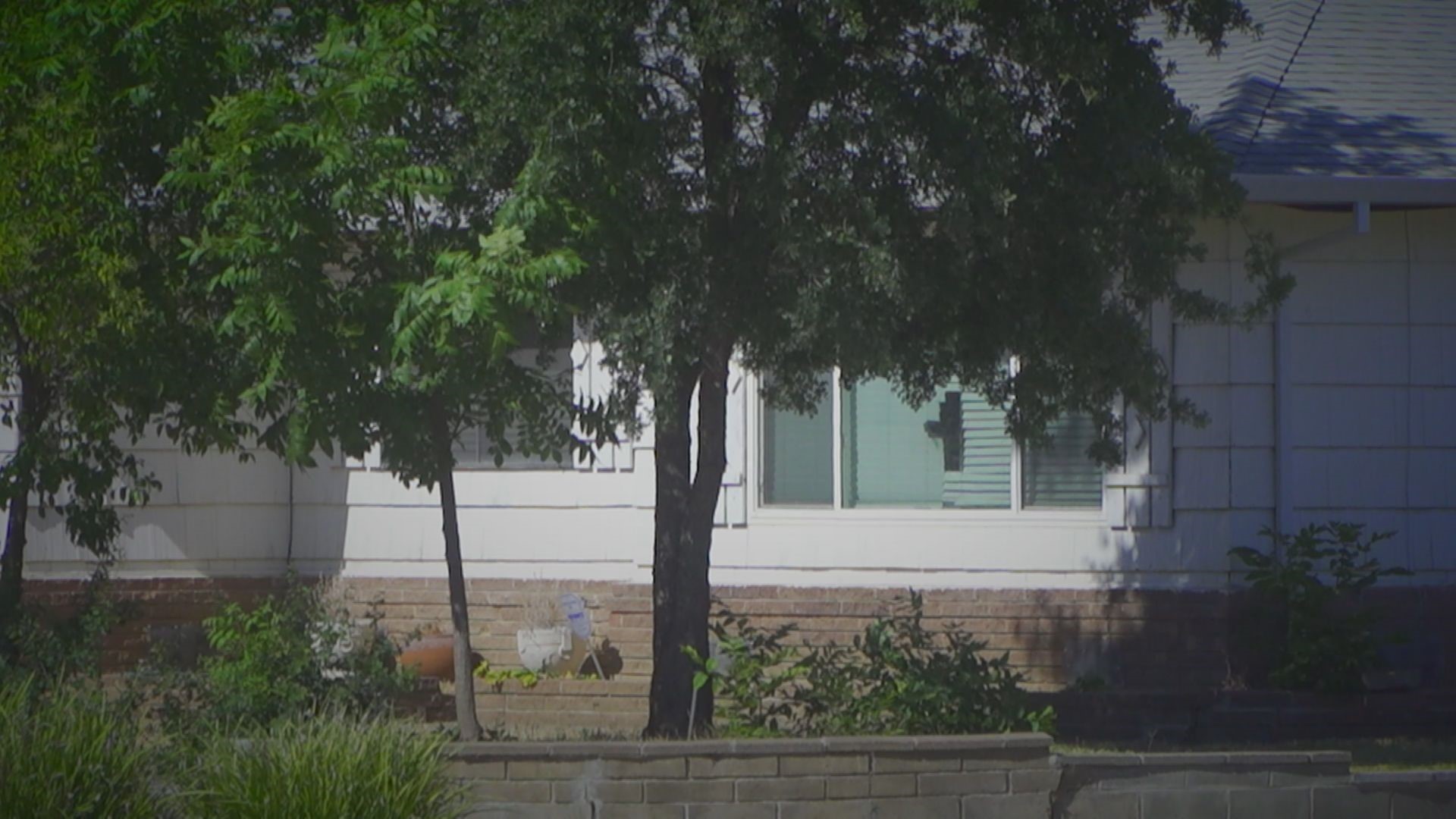Home>Home Security and Surveillance>What Are My Rights For Home Protection In California


Home Security and Surveillance
What Are My Rights For Home Protection In California
Modified: March 6, 2024
Find out what your rights are for home protection in California and how home security and surveillance systems can help safeguard your property.
(Many of the links in this article redirect to a specific reviewed product. Your purchase of these products through affiliate links helps to generate commission for Storables.com, at no extra cost. Learn more)
Introduction
When it comes to ensuring the safety and security of your home, understanding your rights is essential. Living in California, you have certain legal protections in place that govern your ability to protect yourself and your property. This article will provide you with a comprehensive overview of your rights for home protection in the state of California.
California has specific laws that govern self-defense and the use of force, both inside and outside of your home. It is important to be familiar with these laws, as they can impact your rights and responsibilities in protecting yourself and your loved ones.
In the following sections, we will discuss the Castle Doctrine, your right to use force for self-defense, the Stand Your Ground law, protection against home invasion, limitations on home protection rights, restrictions on types of weapons, and the legal consequences for the misuse of home protection rights.
By understanding these aspects of California’s laws, you can make informed decisions about the best ways to secure your home and protect your family.
Key Takeaways:
- Know your rights: In California, you have the right to defend your home and loved ones from intruders without the obligation to retreat. However, always prioritize safety and use force responsibly.
- Understand limitations: While you have the right to protect your home, it’s important to use reasonable force and avoid provocation. Misuse of home protection rights can lead to legal consequences.
Read more: What Is Home Protection Scheme
Understanding California’s Castle Doctrine
The Castle Doctrine refers to the legal principle that allows individuals to use force, including deadly force if necessary, to protect themselves and their property within their own home. In California, the Castle Doctrine is codified under the state’s self-defense laws.
Under the Castle Doctrine, you have the right to defend your home from intruders without the obligation to retreat. This means that if someone unlawfully enters your property, you are not required to flee or retreat before taking action to protect yourself or others inside your home.
However, it is important to note that the Castle Doctrine does not give you unrestricted permission to use force. You must reasonably believe that you or someone else is in immediate danger of physical harm or death in order to justify using force in self-defense.
It is also important to remember that the Castle Doctrine only applies to incidents that occur within your home or on your property. If a confrontation occurs outside of these boundaries, different self-defense laws may apply.
Additionally, it is crucial to understand that even though the Castle Doctrine provides some level of protection, the use of deadly force should always be a last resort. It is always advisable to first attempt to de-escalate the situation and contact law enforcement if possible.
Understanding the Castle Doctrine empowers you to make informed decisions regarding the protection of your home and loved ones. By being aware of your rights and responsibilities, you can better navigate the complex landscape of self-defense laws in California.
Right to Use Force for Self-Defense
In California, individuals have the right to use force, including deadly force if necessary, to defend themselves or others from imminent harm. This right is based on the principle of self-defense and is included in the state’s laws.
Under California law, you may use force to protect yourself or someone else if you reasonably believe that you or the other person is in immediate danger of physical harm or death. This means that you are not required to wait until an actual physical attack occurs before taking action to defend yourself.
However, it is important to note that the use of force must be proportionate to the threat faced. In other words, you should only use as much force as is necessary to neutralize the threat. The use of excessive force may lead to legal consequences.
Additionally, the law places a duty on individuals to retreat if it is possible to do so safely. This means that if you can avoid a confrontation by retreating or seeking help, you should do so rather than resorting to force. However, this duty to retreat is not applicable within your own home.
It is crucial to remember that the right to use force for self-defense is a complex legal concept. Each situation is unique, and the specific circumstances of a case will be considered by law enforcement and the court when determining the reasonableness of your actions.
Therefore, it is important to understand your rights and obligations when it comes to using force for self-defense. Consulting with a legal professional who specializes in self-defense laws can provide you with the guidance and advice you need to navigate these complex matters.
By understanding your right to use force for self-defense, you can better ensure the safety and security of yourself and your loved ones in challenging situations.
Stand Your Ground Law in California
California does not have a standalone “Stand Your Ground” law like some other states. However, the concept of stand your ground is incorporated into the state’s self-defense laws.
Under California law, you have the right to stand your ground and defend yourself without a legal obligation to retreat if you are in a place where you have a lawful right to be, such as your home. This means that if you reasonably believe that you or someone else is in immediate danger of physical harm or death, you can use force, including deadly force if necessary, to protect yourself or others.
The absence of a specific stand your ground statute does not mean you must retreat in the face of danger. California recognizes the importance of self-defense and allows individuals to defend themselves and others, even if retreating is possible. However, it is important to note that the law still requires the use of reasonable force in proportion to the threat faced.
It is worth mentioning that the concept of stand your ground is often applied within the context of public spaces or outside the home. In such cases, your actions will be closely scrutinized to determine if the use of force was reasonable given the circumstances.
Furthermore, even though stand your ground principles apply in California, it is always wise to prioritize personal safety and attempt to de-escalate situations or seek assistance from law enforcement when possible. Engaging in a physical confrontation should be a last resort.
Understanding the principles of stand your ground and how they are interpreted within California’s self-defense laws is crucial for protecting yourself and your loved ones while staying within the boundaries of the law.
Protection against Home Invasion
Home invasion is a terrifying experience that can leave individuals feeling vulnerable and violated. Fortunately, California law provides certain protections to homeowners to defend themselves and their property against home invasion.
Under California law, you have the right to protect your home and its occupants from intruders, and you are not legally required to retreat if someone unlawfully enters your home. This means that you have the right to use force, including deadly force if necessary, to defend yourself and your family against a home invader.
It is important to note that the use of force must be reasonable and proportionate to the threat faced. This means that you should only use as much force as is necessary to stop the invasion and protect yourself and others. Using excessive force may lead to legal consequences.
In addition to physical force, there are various security measures you can take to enhance protection against home invasion. Installing sturdy doors and windows, using security systems, and employing surveillance cameras can deter potential intruders and provide valuable evidence in the event of a home invasion.
Collaborating with your neighbors and participating in community watch programs can also create a safer environment in your neighborhood and reduce the risk of home invasion.
Furthermore, it is crucial to have a home security plan in place and to communicate it with all household members. This includes establishing safe areas within the home where family members can go in the event of an invasion and ensuring that everyone knows how to contact law enforcement in an emergency.
Being prepared and proactive can significantly reduce the likelihood of a successful home invasion and help protect your home and loved ones.
Remember, prevention is key, so take steps to secure your home and employ self-defense strategies to ensure the safety and security of your household against the threat of home invasion.
In California, you have the right to defend your home with reasonable force if you believe someone is trying to unlawfully enter. However, it’s important to understand the laws around self-defense and use of force to avoid legal consequences.
Read more: What Is Total Home Protection
No Duty to Retreat Inside Your Home
One key aspect of self-defense laws in California is the recognition that you have no duty to retreat within the confines of your own home. This means that if you find yourself facing an intruder or potential threat inside your home, you are not legally obligated to retreat or attempt to escape before using force to protect yourself or your family.
This principle, known as the “no duty to retreat” rule, acknowledges the unique nature of the home as a place of sanctuary and personal security. It recognizes that individuals have the right to feel safe in their own homes and to defend themselves and their loved ones from harm.
By eliminating the requirement to retreat, California law empowers individuals to take immediate action to protect themselves and their families from intruders or attackers without the added burden of assessing escape routes or considering alternative options.
However, it is important to note that the absence of a duty to retreat inside your home does not give you unfettered permission to use force. You must still have a reasonable belief that you or someone else is in imminent danger of bodily harm or death in order to justify the use of force.
Additionally, the use of force should be proportionate to the threat faced. This means that you should only use as much force as is necessary to stop the threat and protect yourself and your loved ones.
Understanding that you have no duty to retreat inside your home can provide you with an added sense of security and confidence in your ability to protect yourself and your family. However, it is important to always prioritize personal safety and seek assistance from law enforcement whenever possible.
By being aware of your rights, you can navigate the complexities of self-defense laws in California and make informed decisions to ensure the safety and security of your home.
Limitations on Home Protection Rights
While California recognizes the right to protect yourself and your home, it is important to be aware of the limitations on these home protection rights. Understanding these limitations can help you navigate the legal landscape and ensure that you stay within the boundaries of the law.
One key limitation is the requirement of reasonableness. In order to justify the use of force in self-defense, you must have a reasonable belief that you or someone else is in imminent danger of physical harm or death. This means that your response should be proportionate to the threat faced. The use of excessive force may result in legal consequences.
In addition, it is important to remember that self-defense laws generally do not provide you with the right to use force against individuals who have a lawful right to be on your property. This includes individuals such as police officers or individuals with whom you have a legal relationship, such as landlords or repair technicians.
Furthermore, the law does not authorize you to use deadly force in order to protect property alone. While you have the right to defend yourself and others from physical harm, the use of deadly force should be limited to situations where there is a threat of serious bodily injury or death.
Another limitation to consider is the concept of avoiding provocation. If you engage in behavior that initiates or escalates a confrontation, your right to claim self-defense may be compromised. It is important to always prioritize personal safety and to avoid unnecessary confrontation whenever possible.
Lastly, it is crucial to adhere to any local ordinances or regulations regarding home protection, such as restrictions on the use of certain types of weapons or firearms. Familiarize yourself with the laws specific to your jurisdiction to ensure that you are in compliance with any applicable regulations.
By understanding the limitations on your home protection rights, you can make informed decisions to protect yourself and your property within the boundaries of the law. If you have any questions or concerns, consulting with a legal professional can provide you with further guidance and clarification.
Restrictions on Types of Weapons
When it comes to home protection rights in California, it is important to be aware of the restrictions on the types of weapons you can possess and use. California has strict regulations and limitations in place regarding certain weapons, and understanding these restrictions is crucial to stay within the boundaries of the law.
One important restriction to note is the ban on assault weapons. California law defines assault weapons as firearms with specific characteristics, such as detachable magazines, pistol grips, and flash suppressors. The possession, sale, and transfer of assault weapons are generally prohibited in the state, with limited exceptions for individuals who possessed them prior to certain dates and have complied with registration requirements.
In addition to assault weapons, California also has specific regulations surrounding handguns. Handguns must be registered with the state, and individuals carrying concealed weapons must obtain a concealed carry permit. It is important to familiarize yourself with the legal requirements and limitations surrounding the possession and use of handguns in California.
Furthermore, California law categorizes certain weapons as prohibited or restricted based on their inherent dangers. These include weapons such as destructive devices, short-barreled shotguns, and certain types of knives. Possessing these weapons without authorized permission can lead to serious legal consequences.
It is important to note that while some individuals may choose to arm themselves for home protection, the use of firearms should always be approached with extreme caution and responsibility. Proper training and adherence to safety protocols are crucial to avoid accidents and misuse of firearms.
If you are considering owning a firearm for home protection, it is advisable to familiarize yourself with California’s laws and to obtain the necessary permits and certifications. Consulting with a legal professional who specializes in firearms laws can provide you with the guidance and information you need to navigate this complex area of legislation.
By understanding the restrictions on the types of weapons you can possess and use, you can ensure that you stay within the legal boundaries while taking steps to enhance the safety and security of your home.
Legal Consequences for Misuse of Home Protection Rights
While California recognizes the right to protect yourself and your home, it is crucial to understand that there can be legal consequences for the misuse of these home protection rights. Misuse can include the use of excessive force, the use of force in non-justifiable situations, or the misuse of weapons.
If you use force that is deemed excessive or unreasonable in self-defense, you may be subject to criminal charges, such as assault, battery, or even homicide. The law requires that the use of force be proportionate to the threat faced. Using more force than necessary can lead to serious legal consequences.
It is important to note that the burden of proof lies with the individual claiming self-defense. You will need to demonstrate that the use of force was justified and reasonable based on the circumstances at the time of the incident.
In cases where weapons are involved, misusing or possessing prohibited weapons can result in additional charges. California has strict regulations regarding firearms and certain types of weapons, and violating these laws can lead to criminal charges and penalties.
In addition to criminal charges, individuals who misuse home protection rights may also face civil liability. If your actions result in harm to another person, they may file a civil lawsuit against you, seeking compensation for damages and injuries incurred.
It is important to remember that self-defense laws are complex and can vary based on the specific circumstances of each case. Consulting with a legal professional who specializes in self-defense laws can provide you with the guidance and representation needed to navigate legal challenges effectively.
To avoid legal consequences for the misuse of home protection rights, it is crucial to prioritize personal safety, act reasonably, and always consider alternative options before using force. Additionally, adhering to the laws and regulations regarding weapons and firearms is essential to stay within the boundaries of the law.
By understanding the potential legal consequences and acting responsibly, you can exercise your home protection rights while minimizing the risk of legal complications.
Conclusion
Ensuring the safety and security of your home is of paramount importance, and understanding your rights for home protection in California is essential for making informed decisions. By familiarizing yourself with the Castle Doctrine, your right to use force for self-defense, the absence of a duty to retreat inside your home, and the limitations and restrictions on home protection rights, you can better navigate the legal landscape.
California’s laws provide you with the ability to defend yourself and your loved ones from harm and intruders. However, it is crucial to exercise these rights responsibly and within the boundaries of the law. The use of excessive force or the misuse of weapons can potentially result in legal consequences.
Remember, your safety and the safety of your family should always be the top priority. Properly securing your home with robust doors and windows, utilizing security systems, and employing common-sense safety measures can help deter potential threats and mitigate the need for self-defense.
In situations where you do need to protect yourself, being aware of your rights and understanding the principles of self-defense can empower you to make informed and appropriate decisions. Prioritize personal safety, attempt to de-escalate situations whenever possible, and seek assistance from law enforcement where appropriate.
Finally, it is important to stay up-to-date with changes in the law and any additional local regulations or ordinances that may affect your home protection rights. Consulting with a legal professional who specializes in home security and self-defense can provide you with the guidance and advice needed to navigate the complexities of these laws.
By being knowledgeable and proactive when it comes to your home protection rights, you can take the necessary steps to safeguard your home and loved ones while ensuring that you stay within the boundaries of the law.
Frequently Asked Questions about What Are My Rights For Home Protection In California
Was this page helpful?
At Storables.com, we guarantee accurate and reliable information. Our content, validated by Expert Board Contributors, is crafted following stringent Editorial Policies. We're committed to providing you with well-researched, expert-backed insights for all your informational needs.













